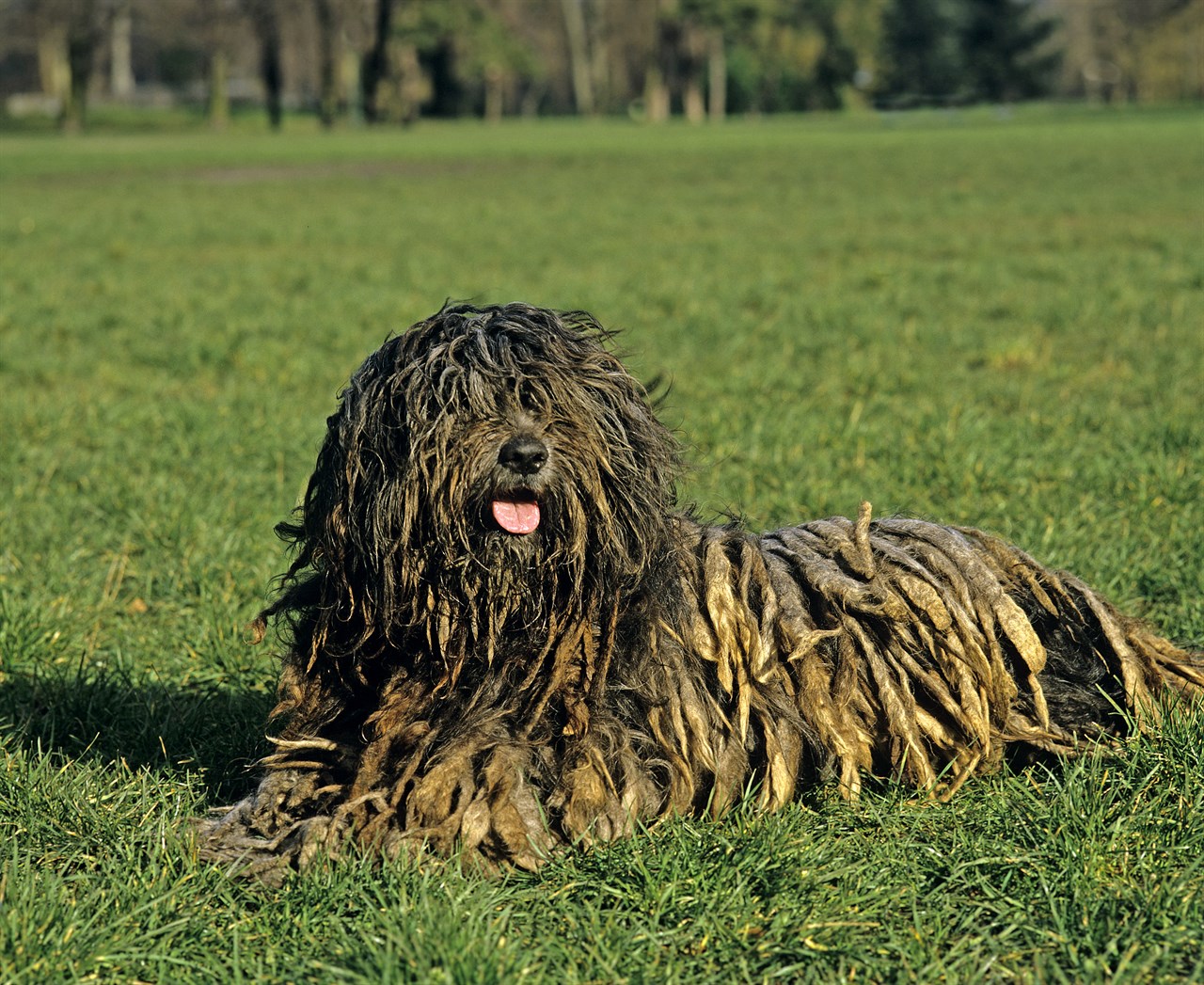Common Health Issues of the Bergamasco Shepherd Dog

The Bergamasco Shepherd Dog is generally a healthy breed with a robust constitution. However, like all breeds, they can be prone to certain health issues. Responsible breeding practises and regular veterinary care can help minimise the risk of these conditions. Here are some of the common health issues associated with Bergamascos.
Hip Dysplasia
Hip dysplasia is a genetic condition in which the hip joint doesn't develop properly, leading to arthritis and mobility issues. Responsible breeders perform hip evaluations to reduce the risk of this condition in their breeding dogs.
Eye Problems
Bergamascos can be prone to various eye issues, including cataracts, progressive retinal atrophy (PRA), and entropion (a condition in which the eyelids roll inward). Regular eye check-ups can help detect and address these problems early.
Bloat (Gastric Torsion)
Bloat is a potentially life-threatening condition in which the stomach fills with gas and twists. It can occur suddenly and requires immediate veterinary attention. Feeding your Bergamasco smaller, more frequent meals and avoiding exercise immediately after eating can help reduce the risk of bloat.
Skin Issues
The Bergamasco's unique coat can be susceptible to skin problems if not properly cared for. Mats or tangles in the coat can trap moisture and debris close to the skin, potentially leading to skin infections. Regular grooming and coat maintenance are crucial to prevent skin issues.
Thyroid Disorders
Hypothyroidism, an underactive thyroid gland, can affect some Bergamascos. Symptoms may include weight gain, lethargy, and skin problems. Thyroid testing can help diagnose and manage this condition.
Allergies
Like many breeds, Bergamascos can develop allergies to environmental factors (such as pollen or dust) or food. Allergies may manifest as skin irritations, itching, or digestive problems. Identifying and managing allergens can help alleviate these issues.
Hip and Elbow Dysplasia
Hip and elbow dysplasia can occur in Bergamascos, leading to joint pain and mobility issues. Responsible breeders screen for these conditions to reduce the risk.
Epilepsy
Some Bergamascos may develop epilepsy, a neurological disorder characterised by recurrent seizures. Medication can help manage the condition in affected dogs.
Are Bergamasco Shepherds Hypoallergenic?
Yes, Bergamasco Shepherd Dogs are often considered hypoallergenic due to their minimal shedding coat. However, it's important to note that no dog breed is entirely hypoallergenic. While Bergamascos don't shed hair like many other breeds, allergenic proteins can still be present in their skin, saliva, and urine. Individuals with allergies should spend time with a Bergamasco to assess their personal tolerance before bringing one into their home.
What Are the Health Problems with Bergamasco Sheepdogs?
The common health problems associated with Bergamasco Shepherd Dogs include-
- Hip Dysplasia: A genetic condition that affects the hip joints.
- Eye Problems: Including cataracts, PRA, and entropion.
- Bloat (Gastric Torsion): A potentially life-threatening condition that affects the stomach.
- Skin Issues: Due to the unique coat, mats or tangles can lead to skin problems if not properly maintained.
- Thyroid Disorders: Particularly hypothyroidism, which can affect metabolism and overall health.
- Allergies: Environmental and food allergies can manifest as skin irritations or digestive problems.
- Hip and Elbow Dysplasia: Joint conditions that can cause pain and mobility issues.
- Epilepsy: A neurological disorder characterised by seizures.
Regular veterinary check-ups, responsible breeding practises, and proper care can help minimise the risk of these health issues and ensure a longer, healthier life for your Bergamasco Shepherd Dog.
Bergamasco Shepherd Dog puppies for sale
- Find Bergamasco Shepherd Dog puppies for sale in ACT
- Find Bergamasco Shepherd Dog puppies for sale in NSW
- Find Bergamasco Shepherd Dog puppies for sale in NT
- Find Bergamasco Shepherd Dog puppies for sale in QLD
- Find Bergamasco Shepherd Dog puppies for sale in SA
- Find Bergamasco Shepherd Dog puppies for sale in TAS
- Find Bergamasco Shepherd Dog puppies for sale in VIC
- Find Bergamasco Shepherd Dog puppies for sale in WA